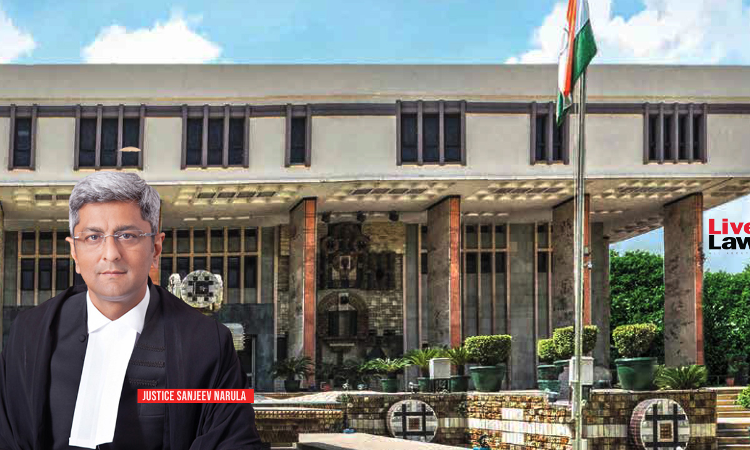- Home
- /
- High Courts
- /
- Delhi High Court
- /
- Judge's Refusal To Grant...
Judge's Refusal To Grant Adjournment Or Consolidate Connected Complaint No Ground For Case Transfer: Delhi High Court
Nupur Thapliyal
6 Oct 2025 1:15 PM IST
The Delhi High Court has said that a judge's refusal to grant adjournment on dates sought or to consolidate connected complaint is not grounds for transferring the case to another judge.“Scheduling is an aspect of case management, and unless shown to be actuated by mala fides, it cannot give rise to a reasonable apprehension of partiality,” Justice Sanjeev Narula said.The Court dismissed...
The Delhi High Court has said that a judge's refusal to grant adjournment on dates sought or to consolidate connected complaint is not grounds for transferring the case to another judge.
“Scheduling is an aspect of case management, and unless shown to be actuated by mala fides, it cannot give rise to a reasonable apprehension of partiality,” Justice Sanjeev Narula said.
The Court dismissed with Rs. 10,000 costs a plea filed by a man facing three cheque bouncing cases, seeking transfer of one of the complaints from the Court of Judicial Magistrate First Class to any other Court of competent jurisdiction.
He challenged the order passed by the Principal District & Session Judge refusing to transfer the case. All the three complaint cases were being heard together before the JMFC.
When the cases were listed for cross-examination, the Petitioner's main counsel was unable to appear and the junior counsel sought an adjournment, which was allowed, but subject to costs of Rs, 1000.
On the next date, the counsel for the Petitioner was engaged elsewhere and another adjournment was sought which was allowed but Rs. 5,000 costs were imposed in each case.
Later, in one of the complaints, the cross examination could not get concluded due to shortage of time and was deferred. The Petitioner alleged that during the course of evidence, the Magistrate did not properly record the answers and intervened in a way that influenced the witness's testimony.
On the next date, the petitioner's request for adjournment was denied and his right of cross-examination in the complaint case was closed.
Thereafter, the counsel for the Petitioner sought an adjournment due to ill health and requested that the cases be heard along with the third complaint but the request was declined, and the two matters were instead adjourned to be heard separately.
It was contended that the sequence of events, culminating in the refusal to accommodate his request for adjournment on medical grounds and for consolidation with a connected complaint, gave rise to a reasonable apprehension that the judge was predisposed against the Petitioner.
Rejecting the plea, the Court said that the mere fact that the Trial Court advanced the date for final arguments does not, by itself, indicate any element of bias or prejudice in the conduct of proceedings.
It added that Petitioner did not even move a formal application before the Trial Court questioning the change of date and thus, no allegation of bias could be reasonably sustained.
Justice Narula said that entertaining transfer requests without adequate foundation not only undermines the confidence reposed in the Presiding Officer but also unsettles the progress of trial.
“Conflating routine case-management decisions with prejudice or bias on part of the Presiding Officer, undermines the high threshold required to justify a transfer. In the present case, the allegations are speculative and unsupported by any substantive material. Rather than indicating a real likelihood of bias, they reflect an attempt to delay proceedings,” the Court said.
“Entertaining such request would risk eroding judicial authority and incentivizing unwarranted challenges to the conduct of trials,” it added.
Title: GAURAV MALHOTRA v. UMESH CHAND JAIN (PROPRIETOR OF M/S CHAMAN LAL UMESH CHAND JAIN
Citation: 2025 LiveLaw (Del) 1256



